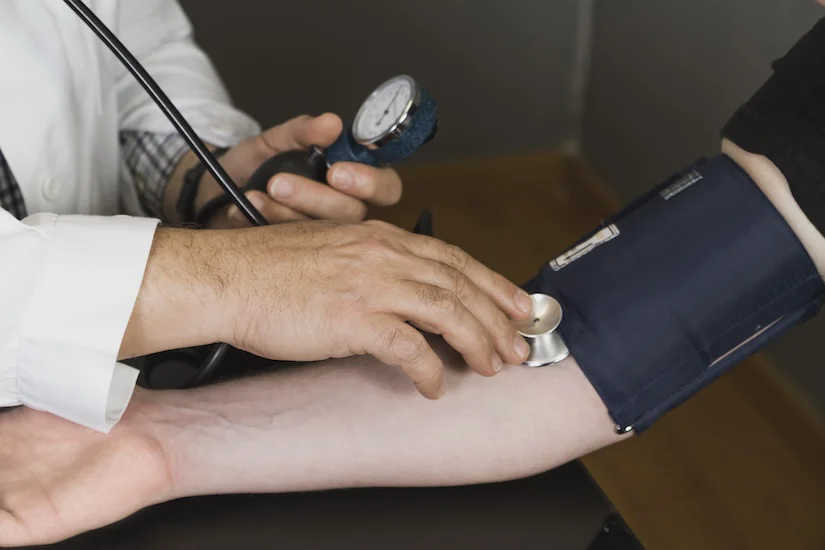Hypertension, also known as high blood pressure, is a condition in which the pressure in your blood vessels is consistently too high (140/90 mmHg or higher). This increased force can damage artery walls and lead to health issues such as heart attack, stroke and kidney disease. Over time, hypertension can cause atherosclerosis, which is the buildup of fatty deposits in the arteries.

The known causes of hypertension (high blood pressure) have not been recorded in over an estimated 95% of patients. For the remaining 5%, the cause can relate to kidney disease, atherosclerosis, and hormonal imbalance. Alternative causes that increase the risk of developing hypertension include diabetes, obesity, and a strong history of high blood pressure.
Blood pressure changes over time depending on the type of activity; some activities, such as exercising or stress, can increase blood pressure. However, these high blood pressure might not require medication attention. If high blood pressure persists, you should consult your doctor for treatment options
Factors that can potentially increase the risk of high blood pressure include:
Lifestyle changes such as eating healthier, quitting tobacco, and being more active can help lower blood pressure. However, some people may still need to take medication.
High blood pressure treatment changes according to the severity of your condition. These may include:
For more severe cases, anti-hypertension medications might be prescribed and ensure taking them on a recommended dosage and schedule.
If you are experiencing symptoms of high blood pressure or need expert advice on managing your condition, consult with a cardiology specialist at Gleneagles Hospitals. Take the first step towards better health today.

Wait a minute